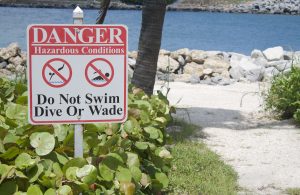Water Safety – Know The Facts
 Did you know on average 400 people drown each year and 200 people take their own lives in our waters? The UK the National Drowning Prevention Strategy 2016-2026 seeks to reduce the number of deaths in our waters by 50%. The National Water Safety Forum is working with organisations to make activities in and around our waters safer.
Did you know on average 400 people drown each year and 200 people take their own lives in our waters? The UK the National Drowning Prevention Strategy 2016-2026 seeks to reduce the number of deaths in our waters by 50%. The National Water Safety Forum is working with organisations to make activities in and around our waters safer.
Drowning in the UK accounts for more accidental fatalities annually than fire deaths in the home or cycling deaths on the road, so measures need to be taken. Drowning often has complex and multiple causes but they are preventable. Interventions such as creating safer environments, providing swimming lessons and water safety education can help to reduce the number of incidents and deaths.
The risk of drowning in the UK population as a whole is low. Drowning affects all groups of people such as small children, teenagers who may take risks and seek thrill-seeking activities, middle-aged people undertaking leisure activities and the elderly who may have underlying health conditions which make them more vulnerable. In every age group, men are more vulnerable with 8 out of 10 deaths.
In nearly half (44%) of the fatal incidents, the person had no intention of entering the water. The person is often taking part in everyday activities such as walking. Consumption of alcohol, the condition of the premises and its location play a role.
Fatal accidents that occur around the home account for only a small amount of fatalities. These often involve small children and the elderly who are more vulnerable.
What can be done to prevent drownings?
- Every child should have the opportunity to learn to swim.
- Educate the public on the risks associated with open water
- All recreational activities in and around water should have a risk assessment identifying the hazards and the associated risks, with a clear plan that addresses the risks.
- Every community with water risks should have a community level risk assessment and water safety plan
- Water safety campaigns. The RNLI have national drowning prevention campaigns, Respect the Water, the RLSS’ Drowning Prevention Week, as well as other drowning prevention and safety programmes
Water Safety Advice whilst on holiday
When going on holiday the last thing you think about is having an accident, and safety is probably the last thing you will think about. But planning ahead and thinking about the tips below can help to keep you and your family safe.
- When booking a holiday seek advice from the travel agent. Ask if the pool/ beach is safe and attended by lifeguards.
- When you arrive check the arrangements for any water-based activities, and how they are managed. Children as most at risk within the first hour of arriving at the destination. Parents can be distracted by unpacking. Ensure your children are kept close and supervised.
- Check the area for hazards. It is always worth knowing what the safety flags mean.
- Always swim with your children.
- Check the depth of the swimming pool
- Don’t swim when alcohol has been consumed.
- When at the beach be aware of rip tides and currents.
- Swim parallel to the beach/ shore
- Always look for warning and guidance signs.
- Do not use inflatables in open water.
- Always get out of open water when you first start to feel cold.
Can We Help?
If you’re working in a place that’s close to water or even involving water and you need help to ensure your health and safety is up to scratch, give Sureteam a call on 01666 503686 or write to us using our contact form.




